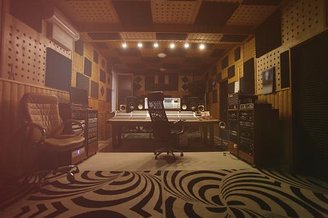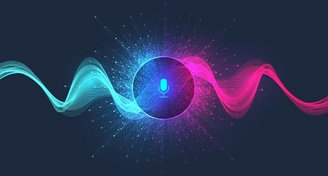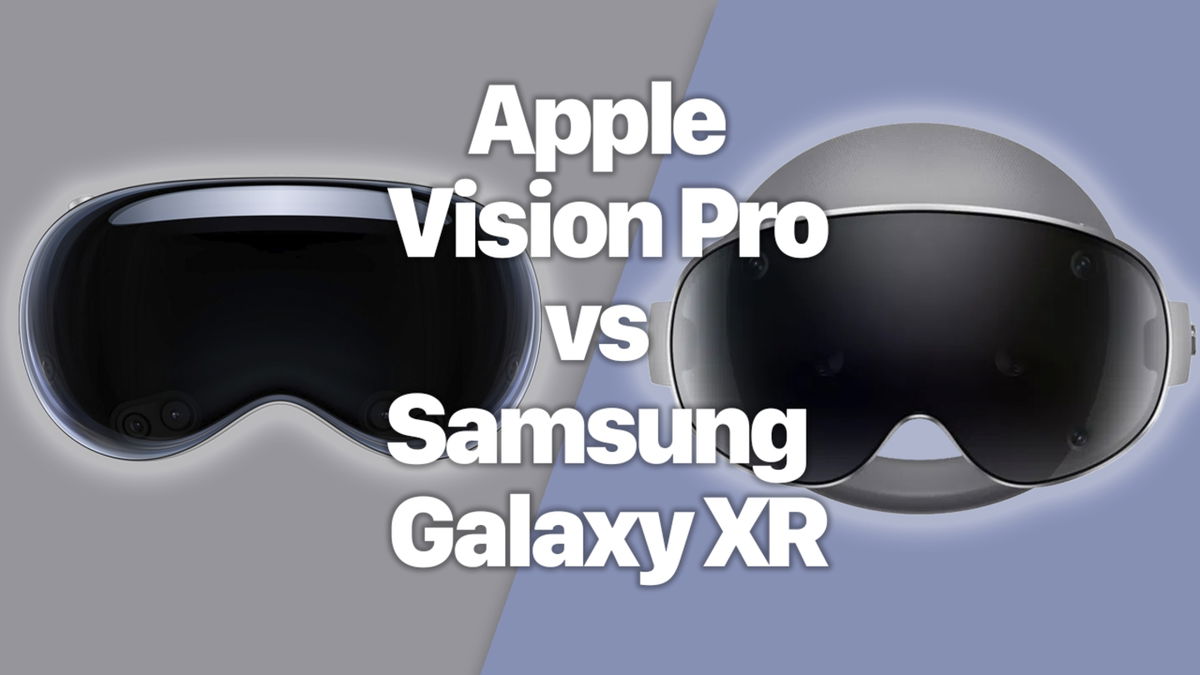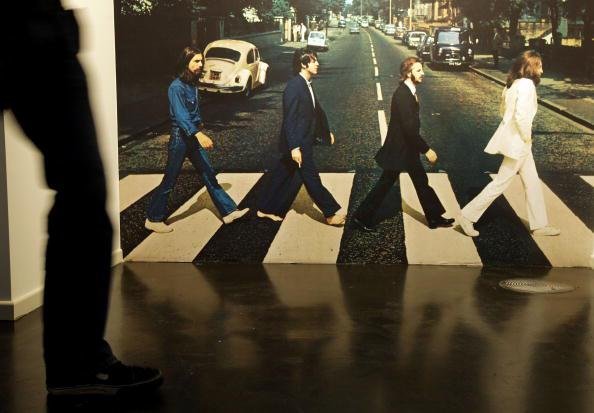Artificial intelligence (AI) is transforming music in fascinating ways. From isolating different parts of a song to creating incredibly realistic synthetic sounds, AI technologies are making a significant mark in the music industry.
But these advances are also heated debates Sabout what is considered legitimate creativityWho owns the copyright and how to guarantee the originality of the musical creation.
Master the subject by understanding what music mixing is using artificial intelligence and how this process creates solutions and new challenges for the contemporary music scene.
What is the process of “unmixing” songs?
Artificial intelligence (AI)-driven “demixing” of music is a revolution in the way we understand and process musical recordings. This advanced technique uses intelligent algorithms to analyze stereo recordings. separating individual instruments and isolating each sound element.
For Geraldo Ramos, CEO of Moises, an app that uses this technology, it’s like having an “audio scientist” delving into the complex mix of a song and bringing out each instrument clearly.
Ramos highlights Moises’ initial mission to democratize musical creation and make accessible technologies that were previously the privilege of the few. “In the past, some companies charged around $5,000 per song to separate tracks. Today, we offer this and other technologies for free to more than 40 million users,” explains the Brazilian businessman.
The most important recent event of this process is Release of the song “Now and Then – The Last Beatles Song”, It was created with the help of AI and using a homemade demo tape that John Lennon recorded in 1978.
This innovation made it possible to clean up the original sound, use guitar work by former Beatles member George Harrison, who died in 2001, and bring together Paul McCartney and Ringo Starr to contribute to the recording, as shown in the short film accompanying the album. release.
Innovation doesn’t just happen on the international stage. Brazil also stands out in this musical revolution. Ramos says Moises played a fundamental role in restoring the soundtrack for the documentary “Elis e Tom – Só Nunca de Ser Com Você” under the supervision of producer Tejo Damasceno to enhance the almost 50-year-old recordings.
Another example is from the work of singer Luana Carvalho, who collaborated with the voice of her mother Beth Carvalho, who passed away in 2019. Some parts of the famous samba singer’s voice were taken from a 1978 recording, edited and added to the 2020 song. “Visual” allows the two to sing together.
And believe this if you want: The combination of artificial intelligence and music is not a new development that suddenly emerged. Since the 1950s, explorers such as Alan Turing began to explore the possibilities of computational musical intelligence.
Today, these innovations not only improve upon old recordings, they also redefine the nature of musical creation and chart a future where past and present harmonize in surprising ways.
How does artificial intelligence benefit music production?
The marriage between artificial intelligence and musical creation is a symphony that has unfolded over the years. Earlier, tools such as Neutron 4 and LANDR were already present in the music universe, now we are witnessing a revolution with deep learning technologies.
Unlike traditional tools, deep learning systems are capable of self-learning from data. Does not require constant supervision from human expertsThis signals that AI is about to master technical tasks that until then have only required human skill.
The mixing process is one example, involving adjustments to duration, tempo, lyrics, and instrumentation. Artificial intelligence tools such as LALAL.AI, LANDR AI Mastering, BandLab SongStarter, FAST Verb and AudioShake make this process instantaneous.
Now musicians, whether professional or amateur, can rely on these tools. perform complex remixes, add instruments, vocals andexport files in different formatsAll in a much shorter time.
This revolution not only speeds up processes, but also puts an arsenal of creative possibilities in the hands of musicians. Artificial intelligence is no longer a passive tool, but is becoming an active partner in the creative process.
Check out other benefits of using AI to create music:
Data analysis to optimize music production
AI’s ability to analyze large volumes of data is one of the music world’s greatest assets. Through this analysis, record labels and artists can unravel patterns and trends in public behavior.
This not only improves marketing strategies, but also tailors the music production itself to what resonates most with listeners. Thus, music takes on new forms to become a narrative that speaks intimately to listeners.
Composition with algorithms and interaction with musical instruments
Music creation is entering a new era with the potential of artificial intelligence to create parts, harmonies and lyrics. Advanced algorithms not only mimic the styles of different artists, but also innovate, resulting in music that is both original and engaging.
Additionally, electronic instruments respond to musical stimuli, creating a synergy between the machine and the musician. This interaction enriches musical expression and opens the door to different sounds.
Development of musical abilities
AI can also be an excellent tool for training and developing talent, from aspiring musicians to professional musicians. The software offers real-time exercises and feedback to improve vocal techniques and expand musical ranges.
Musicians with demixing Isolate a specific instrument and learn new songs to play live. “Titas’ drummer Charles Gavin used and recommended our tool to prepare for the band’s latest tour,” says Moises’ CEO.
Improvement in production quality
AI-based mixing and mastering tools automatically correct minor errors and optimize balancing and dynamics, ensuring a high-quality final sound. Even without the physical presence of an experienced sound engineer, AI is taking production to new levels of excellence.

Artificial intelligence in music: challenges to overcome
The journey towards seamlessly integrating AI into music creation is not without significant challenges. We have listed some of the main obstacles!
Impact on the careers of producers, artists and sound engineers
Automation of technical tasks such as mixing and sound engineering raises questions about the evolution of these professions. For Christian Steinmetz, AI audio researcher at Queen Mary University: mechanical tasks can be automatedbut the creative vision and artistic decisions remain unique.
Mat Dryhurst, co-founder of startup Spawning, adds that automation may change the very foundation of art, but extraordinary artists will always stand out, regardless of the tools used:
“Generally speaking, the artists we value are those who deviate from the baseline for one reason or another, and just as there have been great artists in every era, there will be great artists in the age of artificial intelligence.”
Ethics and copyright issues
The algorithms are based on existing music data, which has provoked debates about intellectual property and the use of copyrighted works. In the Moises app, the team had to grapple with this challenge from the beginning.
“Existing laws do not deal specifically with artificial intelligence. For example, how to license a “cloned” voice? We had to develop the first agreements of this nature,” explains Ramos.
Use text and other commands to create music with AI
The challenge of creating high-quality music from text commands or other types of prompts in AI requires a tool trained on large amounts of audio.
Unlike images or text, audio has a temporal dimension, complicating the relationship between different parts of a song. Besides, Describing music with words is also a difficult task.Because the art of music is extremely subjective and abstract.
According to CJ Carr and Zack Zukowski, owners of the Dadabots channel on YouTube, “the meaning of timbres, harmonies, and rhythms is up to the listener’s interpretation alone. It can be very difficult to objectively describe an entire song succinctly; imagine, on the fly.”

As AI becomes increasingly attuned to music, the democratization of music creation becomes stronger, providing everyone with a personalized toolbox that can redefine artistic creativity and create new revenue streams.
But, The possibilities offered by this technology are not free from discordant notes. There are still significant challenges in this concert between humanity and artificial intelligence.
“Our aim is to develop tools that complement the creative processes in sound and music, without intending to replace individuals”, reinforces Geraldo Ramos.
What will the future of music be like? If you want to stay up to date on this and many similar technologies, follow TecMundo on social networks. To the next one!
Source: Tec Mundo
I am a passionate and hardworking journalist with an eye for detail. I specialize in the field of news reporting, and have been writing for Gadget Onus, a renowned online news site, since 2019. As the author of their Hot News section, I’m proud to be at the forefront of today’s headlines and current affairs.










